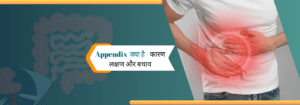PCOS: Symptoms, Treatment, and Prevention Tips
Polycystic Ovary Syndrome
Polycystic Ovary Syndrome (PCOS) is a complex hormonal disorder that affects millions of women worldwide. Understanding the intricacies of PCOS, including its symptoms, treatment options, and prevention tips, is crucial for managing this condition effectively. In this comprehensive guide, we delve into the depths of PCOS, offering valuable insights and actionable advice for those navigating this journey.
What is PCOS?
PCOS, or Polycystic Ovary Syndrome, is a common hormonal disorder characterized by irregular menstrual cycles, hormonal imbalances, and the presence of ovarian cysts. This condition can manifest differently in each individual, leading to a wide range of symptoms and complications.
PCOS Symptoms
Identifying the Telltale Signs
Recognizing the symptoms of PCOS is essential for early diagnosis and treatment. Common symptoms include:
- Irregular menstrual cycles: Women with PCOS may experience irregular periods or prolonged menstrual cycles.
- Hormonal imbalances: Elevated levels of androgens (male hormones) can lead to symptoms such as acne, hirsutism (excessive hair growth), and male-pattern baldness.
- Ovarian cysts: The presence of multiple cysts on the ovaries is a hallmark feature of PCOS and can contribute to infertility and other complications.
- Weight gain: Many women with PCOS struggle with weight gain and difficulty losing weight, despite efforts to maintain a healthy lifestyle.
PCOS Treatment
Managing Symptoms and Improving Quality of Life
Treatment for PCOS aims to alleviate symptoms, regulate menstrual cycles, and address underlying hormonal imbalances. Treatment options may include:
- Lifestyle modifications: Adopting a healthy diet, engaging in regular exercise, and managing stress can help improve symptoms and promote overall well-being.
- Medications: Hormonal contraceptives, insulin-sensitizing agents, and anti-androgen medications may be prescribed to regulate menstrual cycles, reduce androgen levels, and manage symptoms such as acne and hirsutism.
- Fertility treatments: For women struggling with infertility due to PCOS, fertility medications, ovulation induction, and assisted reproductive technologies (ART) may be recommended to improve the chances of conception.
PCOD Symptoms and Treatment
Understanding the Relationship Between PCOS and PCOD
Polycystic Ovarian Disease (PCOD) is often used interchangeably with PCOS, but they are not the same condition. PCOD refers to the presence of multiple cysts on the ovaries, while PCOS encompasses a broader spectrum of symptoms and hormonal imbalances. Treatment for PCOD may overlap with PCOS treatment strategies, focusing on symptom management and hormonal regulation.
PCOS Causes
Unraveling the Underlying Factors
The exact cause of PCOS remains unknown, but several factors may contribute to its development, including:
- Genetics: Family history of PCOS or related conditions may increase the risk of developing the disorder.
- Hormonal imbalances: Insulin resistance, elevated androgen levels, and disrupted ovarian function are key hormonal factors associated with PCOS.
- Lifestyle factors: Poor diet, sedentary lifestyle, and obesity may exacerbate symptoms and contribute to the development of PCOS.
Causes of PCOD
Exploring the Root Causes
Similarly, the exact causes of PCOD are not fully understood but may involve genetic, hormonal, and lifestyle factors. Hormonal imbalances, insulin resistance, and genetic predisposition may play a role in the development of ovarian cysts characteristic of PCOD.
Prevention Tips of PCOS
Empowering Yourself Through Prevention
While PCOS cannot be prevented entirely, adopting a healthy lifestyle and implementing preventive measures can help reduce the risk of developing complications associated with the condition. Key prevention tips include:
- Maintain a healthy weight: Achieving and maintaining a healthy weight through diet and exercise can help regulate hormonal levels and improve symptoms.
- Follow a balanced diet: Focus on whole foods, fruits, vegetables, lean proteins, and healthy fats to support hormonal balance and overall well-being.
- Stay active: Engage in regular physical activity to manage weight, reduce insulin resistance, and improve mood and energy levels.
Conclusion
In conclusion, PCOS is a complex hormonal disorder that requires comprehensive management and care. By understanding the symptoms, treatment options, and prevention tips associated with PCOS and PCOD, individuals can take proactive steps to manage their health effectively. Consulting with a qualified healthcare provider, such as the best gynecologist near you, is essential for personalized diagnosis, treatment, and support on your journey to wellness.
FAQs (Frequently Asked Questions) about PCOS and PCOD
What is PCOS and PCOD, and how are they different?
- PCOS (Polycystic Ovary Syndrome) and PCOD (Polycystic Ovarian Disorder) are hormonal disorders that affect the ovaries. While they share some similarities, PCOS is characterized by hormonal imbalances, irregular periods, and ovarian cysts, whereas PCOD refers to the presence of multiple cysts on the ovaries without necessarily meeting all the diagnostic criteria for PCOS.
What are the common symptoms of PCOS and PCOD?
- Common symptoms of both PCOS and PCOD include irregular menstrual cycles, excess hair growth (hirsutism), acne, weight gain, and fertility issues. However, not all women with PCOD experience hormonal imbalances or insulin resistance, which are characteristic features of PCOS.
What are the potential causes of PCOS and PCOD?
- The exact causes of PCOS and PCOD are not fully understood but are believed to involve a combination of genetic, hormonal, and environmental factors. Insulin resistance, hormonal imbalances, obesity, and genetic predisposition are common risk factors for both conditions.
How are PCOS and PCOD diagnosed?
- Diagnosing PCOS and PCOD involves a combination of medical history review, physical examination, and laboratory tests. Blood tests to measure hormone levels, pelvic ultrasound to detect ovarian cysts, and assessment of symptoms are key components of the diagnostic process.
What are the available treatment options for PCOS and PCOD?
- Treatment for PCOS and PCOD focuses on managing symptoms, regulating menstrual cycles, and addressing underlying hormonal imbalances. Treatment options may include oral contraceptives, insulin-sensitizing medications, lifestyle changes, and fertility treatments.
Can PCOS and PCOD affect fertility?
- Yes, both PCOS and PCOD can affect fertility due to irregular ovulation and hormonal imbalances. However, many women with these conditions are able to conceive with the help of fertility treatments such as ovulation induction and assisted reproductive technologies (ART).
Related Post: Myths & Facts About Painless Delivery
What are the long-term health risks associated with PCOS and PCOD?
- Long-term complications of PCOS and PCOD include type 2 diabetes, cardiovascular disease, endometrial cancer, and pregnancy complications. Regular medical monitoring and proactive management of risk factors are essential for minimizing these risks.
How can lifestyle changes help manage PCOS and PCOD symptoms?
- Implementing healthy lifestyle habits such as regular exercise, balanced diet, stress management, and adequate sleep is essential for managing PCOS and PCOD symptoms. Maintaining a healthy weight can also help improve insulin sensitivity and reduce the risk of complications.
Where can I find support and resources for PCOS and PCOD?
- Seeking assistance from healthcare professionals, support groups, and online resources can provide valuable information and support for managing PCOS and PCOD. Education, advocacy, and community support are essential tools for navigating the challenges of these hormonal disorders.






